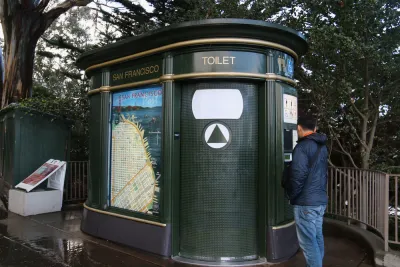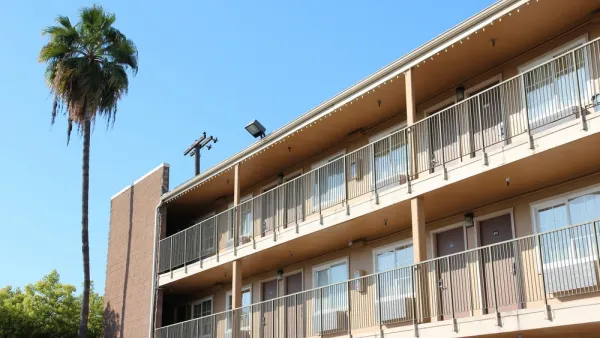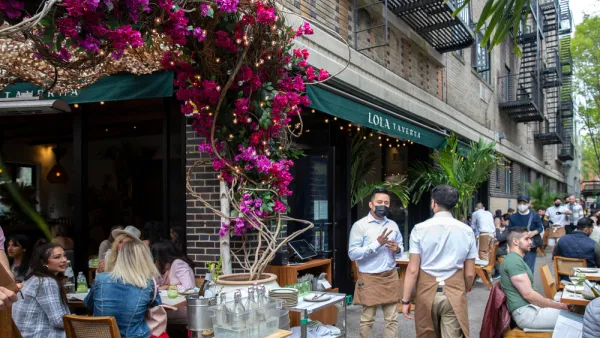Project for Public Spaces urges seven tangible actions for public space managers to support unhoused people during the coronavirus pandemic right now, and moving forward.

Projects at Project for Public Spaces Director of Programs and Projects Elena Madison recently hosted a series of webinars titled 'When “Stay at Home” Isn’t an Option: Public Spaces and Homelessness During COVID-19.' The webinars called upon expertise from representatives of Atlanta's Central Atlanta Progress and HOPE as well as Community Access and Fountain House in New York and focused on what public space managers can do to address the unique and intensified hardships faced by unhoused people during the pandemic.
"In this dire context, public space managers can play a vital role in helping the people who usually frequent their places survive this crisis by collaborating with local social service organizations. Public space managers are experts in observation and experimentation, and with some courage, they can put these skills to good use in helping the most vulnerable people in their community," asserts Nate Storring.
Storring summarized seven critical points made in the webinars, stressing the need to meet people where they are, in places they feel comfortable and safe, to connect them to housing. Unhoused people, however, have experienced a large-scale disruption of community making it more difficult to make connections and meet basic needs.
The PPS webinar also highlighted the need for personal protective equipment for both service providers and their clients. Included in this call for improved hygiene is a call for access to "readily available sanitation options like these could make a lasting change for people living outdoors."
New York City's Fountain House and Community Access distributed cell phones to clients before stores closed, but access to wifi and the challenges with storing belongings overnight have caused difficulty. One suggestion: public space managers could provide inexpensive lockers as storage options.
It is clear the challenges faced by unhoused people today are the result of "years of disinvestment in social services, public health, and public space," reminds Storring, calling on public space managers to work toward enabling public places to support people without houses both now and in the future.
FULL STORY: HOMELESSNESS & PUBLIC SPACE DURING COVID-19: SEVEN TAKEAWAYS

National Parks Layoffs Will Cause Communities to Lose Billions
Thousands of essential park workers were laid off this week, just before the busy spring break season.

Retro-silient?: America’s First “Eco-burb,” The Woodlands Turns 50
A master-planned community north of Houston offers lessons on green infrastructure and resilient design, but falls short of its founder’s lofty affordability and walkability goals.

Delivering for America Plan Will Downgrade Mail Service in at Least 49.5 Percent of Zip Codes
Republican and Democrat lawmakers criticize the plan for its disproportionate negative impact on rural communities.

Test News Post 1
This is a summary

Test News Headline 46
Test for the image on the front page.

Balancing Bombs and Butterflies: How the National Guard Protects a Rare Species
The National Guard at Fort Indiantown Gap uses GIS technology and land management strategies to balance military training with conservation efforts, ensuring the survival of the rare eastern regal fritillary butterfly.
Urban Design for Planners 1: Software Tools
This six-course series explores essential urban design concepts using open source software and equips planners with the tools they need to participate fully in the urban design process.
Planning for Universal Design
Learn the tools for implementing Universal Design in planning regulations.
EMC Planning Group, Inc.
Planetizen
Planetizen
Mpact (formerly Rail~Volution)
Great Falls Development Authority, Inc.
HUDs Office of Policy Development and Research
NYU Wagner Graduate School of Public Service





























